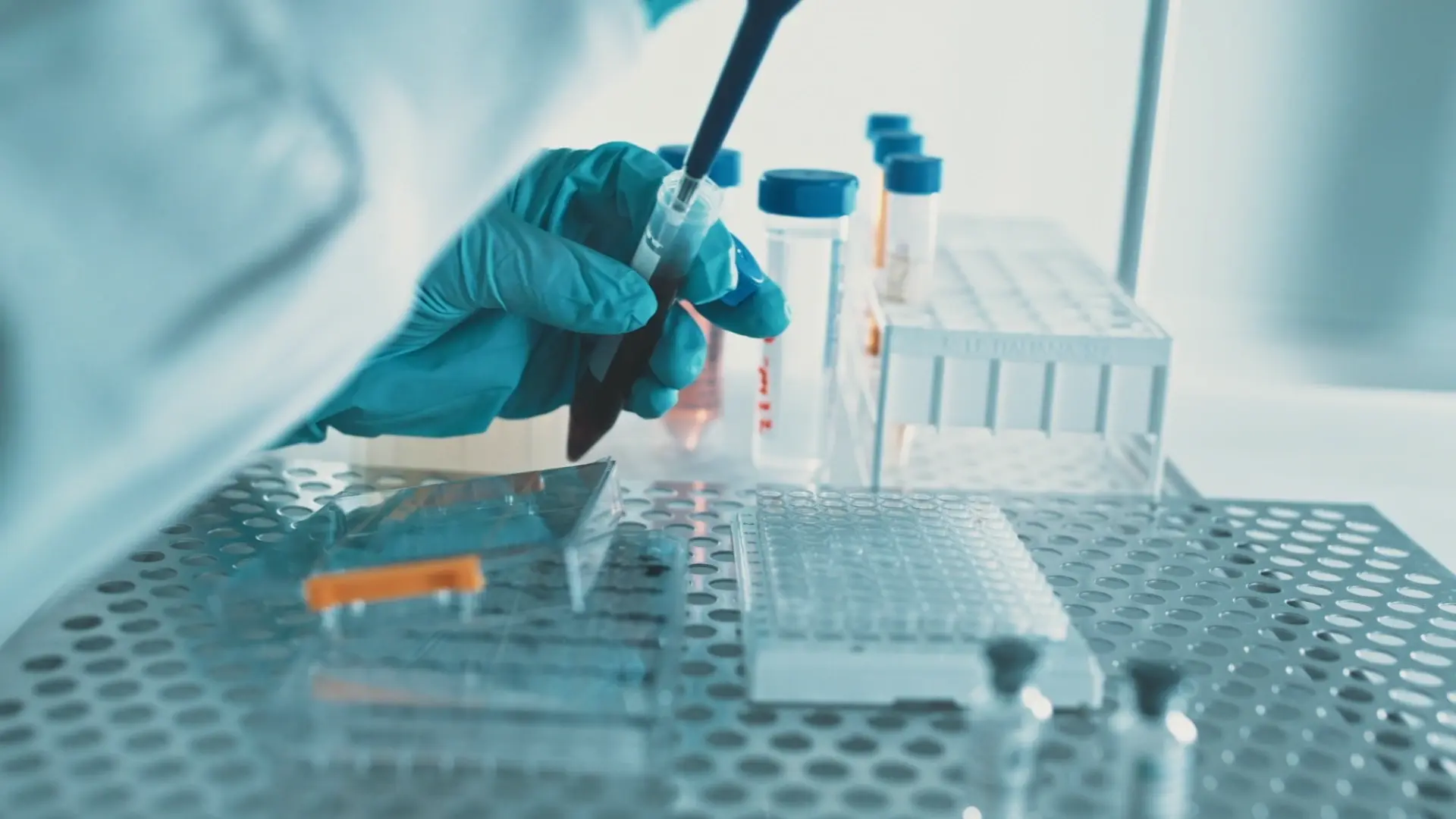Integrative Systems Biology and Multi-omics
Unlock deeper biological insights by integrating multiple layers of omics data with our Integrative Systems Biology and Multi-Omics services. At Cmbio, we help you maximize the potential of your microbiome studies by combining data from various platforms such as metagenomics, metabolomics, transcriptomics, proteomics, and epigenomics. This holistic approach enables a more detailed understanding of the intricate relationships between the microbiome and host physiology, as well as the effects of interventions.
Integrative Systems Biology and Multi-omics
Unlock deeper biological insights by integrating multiple layers of omics data with our Integrative Systems Biology and Multi-Omics services. At Cmbio, we help you maximize the potential of your microbiome studies by combining data from various platforms such as metagenomics, metabolomics, transcriptomics, proteomics, and epigenomics. This holistic approach enables a more detailed understanding of the intricate relationships between the microbiome and host physiology, as well as the effects of interventions.
The Benefits of Integrating Systems Biology
Multi-omics microbiome analysis is enhancing our understanding of human health and disease. By integrating different types of omics data, allows:
-
Decode Genetic and Metabolic Signatures: Gain insights into the genetic makeup and metabolic activities of microbial communities.
-
Elucidate Mechanisms of Action: Understand how interventions affect the microbiome and, in turn, how these changes impact host health.
-
Navigate Data Complexity: Connect the dots between various data types to build a consistent and biologically meaningful narrative.
.webp)
Our Multi-Omics Integration Services
Data Generation in Multi-Omics Bioinformatics
We offer high-quality data generation services for:
-
Metagenomics: Comprehensive sequencing of all microbial genomes present in your samples.
-
Metabolomics: Profiling of metabolites to understand metabolic changes and interactions.
-
Proteomics: Analysis of proteins to uncover functional insights and molecular mechanisms.
-
Metatranscriptomics: Sequencing of RNA transcripts to study gene expression patterns within microbial communities.

What Is Systems Biology?
Systems biology is an interdisciplinary field that focuses on the systematic study of complex interactions within biological systems. Instead of examining individual components (such as a single gene or protein) in isolation, systems biology seeks to understand how these parts interact and give rise to the behavior and function of entire biological networks.
Traditional biology often uses a reductionist approach, studying one part of a system at a time. In contrast, systems biology takes a holistic view, integrating diverse types of data such as genomic, proteomic, metabolomic, and transcriptomic information. This integration helps researchers build comprehensive models of biological processes.
.webp)
How to Use Systems Biology in Research
Address complex, multi-level interactions
If you’re studying cancer, instead of focusing solely on one mutation, you could investigate how various signaling pathways interact to drive tumor progression. This broader question will guide you to integrate diverse data types.
One NIH Catalyst article explains that systems biology “is an approach to understand the complexity of biological systems by integrating data from various sources”. This perspective is crucial when framing research questions that necessitate a holistic approach.
Integrate Multi-Omics Data Analysis
For a study on metabolic disorders, you might combine gene expression profiles with metabolomic data to see how alterations in gene activity correlate with changes in metabolic pathways. This can help identify novel regulatory nodes or biomarkers.
University of Cambridge research highlights the importance of integrating multiple data types to build robust models of biological processes. This approach ensures that all relevant layers of biological information are considered.
-1.webp)
Develop Computational Models and Simulations
In drug discovery research, you can create network models that simulate how different compounds affect signaling pathways within a cell. By running simulations, you can predict potential side effects or synergistic interactions before moving to experimental validation.
Research by EMBOPress underscores the role of computational approaches in systems biology, detailing how mathematical models and simulations can lead to insights that drive experimental design. This is especially useful when experimental testing is costly or time-consuming.
Metagenomics
Integrating metabolomics and metagenomics data can lead to new insights and breakthroughs in understanding host-microbiome interactions. By combining these datasets, you can:
-
Identify Biomarkers: Discover metabolic signatures associated with specific microbial compositions.
-
Understand Host Responses: Elucidate how microbial metabolites influence host physiology and disease states.
-
Enhance Therapeutic Strategies: Inform the development of targeted interventions based on metabolic and microbial profiles.

Our Contributions to Multi-Omics Integration
Our team at Cmbio has a proven track record in multi-omics data integration, contributing to significant scientific advancements in the field. Below are some of our key publications that highlight our expertise and the effectiveness of multi-omics approaches:
Human Gut Microbes Impact Host Serum Metabolome and Insulin Sensitivity
This study demonstrated how gut microbiota influence the host's serum metabolome and insulin sensitivity. By integrating metagenomic and metabolomic data, we identified specific microbial species and metabolites associated with insulin resistance, providing valuable insights into the role of the microbiome in metabolic health.
Reference
Pedersen, H., Gudmundsdottir, V., Nielsen, H. et al. Human gut microbes impact host serum metabolome and insulin sensitivity. Nature 535, 376–381 (2016). https://doi.org/10.1038/nature18646
A Computational Framework to Integrate High-Throughput '-Omics' Datasets for the Identification of Potential Mechanistic Links
Our team developed a computational framework for integrating high-throughput omics datasets, enabling the identification of potential mechanistic links between microbiome composition and host health.
Reference
Pedersen, H.K., Forslund, S.K., Gudmundsdottir, V. et al*.* A computational framework to integrate high-throughput ‘-omics’ datasets for the identification of potential mechanistic links. Nature Protocols 13, 2781–2800 (2018). https://doi.org/10.1038/s41596-018-0064-z
An Online Atlas of Human Plasma Metabolite Signatures of Gut Microbiome Composition
This recent publication presents an extensive online atlas linking human plasma metabolite signatures with gut microbiome composition, facilitating further research and understanding in the field.
Reference
Dekkers, K.F., Sayols-Baixeras, S., Baldanzi, G. et al. An online atlas of human plasma metabolite signatures of gut microbiome composition. Nature Communications 13, 5370 (2022). https://doi.org/10.1038/s41467-022-33050-0
Why Choose Cmbio for Multi-Omics Integration
- Expertise: Our team has extensive experience in multi-omics data integration and systems biology, as evidenced by our impactful publications. We combine deep scientific knowledge with practical insights to deliver results that drive meaningful scientific discoveries.
- Customized Solutions: We tailor our services to meet your specific research goals and challenges. Our bespoke approach guarantees that you receive a strategy perfectly aligned with your research objectives, maximizing the impact of your data.
- Advanced Computational Tools: Utilize state-of-the-art bioinformatics pipelines and analytical methods developed and refined through our own research. Our cutting-edge computational tools empower you to uncover hidden patterns and generate insights that push the boundaries of your research.
- Collaborative Approach: We work closely with you to ensure that the integration of data leads to actionable insights. Our dedicated team fosters open communication and partnership, making sure that every step of the process is aligned with your scientific vision.
Start your personalized multi-omics integration journey today with our innovative solutions. Contact us to learn more.
Our Multi-Omics Integration Services
Our services are designed to help you navigate the complexity of multi-omics data integration tools and analysis. With our expertise in computer science, we can tackle biological complexity by developing and implementing advanced computational pipelines that seamlessly integrate and analyze multiple datasets (genomic, transcriptomic, proteomic, and metabolomic) alongside clinical data, ready for expert interpretation.
Our services provide:
- Customized Analysis Pipelines
Tailored workflows that combine different omics datasets and clinical data. This bespoke approach not only streamlines data processing but also adapts to the unique challenges and goals of your study, allowing you to unlock hidden insights within your datasets. - Expert Interpretation
Our team has years of experience in multi-omics data integration, ensuring accurate and meaningful interpretations. We take pride in our ability to dissect intricate data layers, providing interpretations that not only highlight significant findings but also suggest actionable directions for further exploration. - Discoveries Beyond Correlation
We help you move beyond simple correlations to identify mechanistic links and biological understandings. By applying advanced analytical techniques and integrative modeling, we reveal the underlying processes that drive observed patterns, paving the way for innovative discoveries and more targeted interventions in your research.

Combine the Power of Metabolomics and Metagenomics
Integrating metabolomics and metagenomics data can lead to new insights and breakthroughs in understanding host-microbiome interactions. By combining these datasets, you can:
- Identify Biomarkers: Discover metabolic signatures associated with specific microbial compositions. Analyzing both metabolite profiles and microbial DNA can reveal unique biomarkers that differentiate healthy states from disease conditions. These biomarkers in biological data are invaluable for early diagnosis and for tracking the progression of diseases linked to microbial imbalances.
- Understand Host Responses: Elucidate how microbial metabolites influence host physiology and disease states. This integrated approach sheds light on the complex communication between the microbiome and host cells, clarifying how specific metabolites trigger physiological responses.
- Enhance Therapeutic Strategies: Inform the development of targeted interventions based on metabolic and microbial profiles. The combined insights from metabolomics and metagenomics allow for the design of precise treatment strategies that address both microbial and metabolic imbalances.

Frequently Asked Questions
-
How do multi-omics help in microbiome studies?
Multi-omics approaches integrate data from various biological layers, such as genomics, transcriptomics, proteomics, and metabolomics, to provide a comprehensive view of microbiome composition and function. The holistic insights gleaned from multi-omics studies help identify complex interactions between microbial communities and their hosts.
-
Where do you process the samples?
We process samples in our state-of-the-art, fully accredited laboratories equipped with advanced analytical tools and instruments. Our facilities adhere to rigorous quality control standards to ensure reliable and reproducible results.
-
How do you secure samples?
Samples are secured using robust tracking systems and stored under strict biosecurity protocols in controlled environments. We prioritize confidentiality and comply with all regulatory standards to maintain sample integrity and security in our sampling kits and project handling practices.
-
How do I receive my multi-omics results?
Your results will be delivered through our secure digital portal, where you can access comprehensive bioinformatics reports and data visualizations.
-
How do I send you my samples?
You can send your samples by filling in the form below or contacting us to get started with a sampling kit. For any questions, our customer support is ready to assist you with the logistics process.
Get a Quote
Please use the form provided to submit an outline of your research requirements. Our team will assess the information and provide an initial cost estimate at no charge. If further details are necessary to prepare an accurate quote, we will contact you directly. To facilitate communication, please ensure your email address and phone number are accurate.